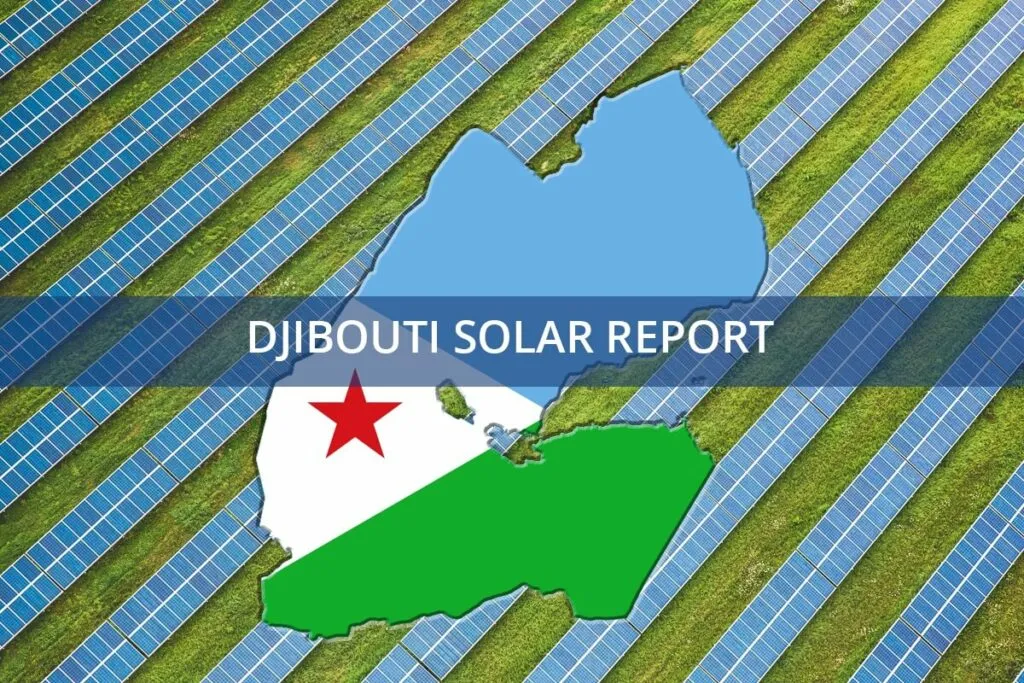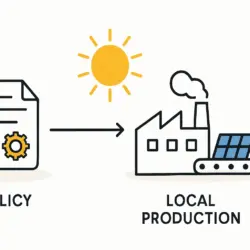Djibouti has launched its first off-grid solar project, a significant milestone in the nation’s journey towards energy independence and sustainability. Powered by high-efficiency panels from LONGi, this initiative was brought to life through a strategic partnership between the Djibouti Electric Power Company (EDP) and Project Africa Solar Technology Ltd (PST), highlighting a growing interest in leveraging Djibouti solar panels for national development.
Djibouti Off-Grid Solar Project
The pioneering 100kW solar project has been installed in Aska, a remote village in the Arta region primarily known for its vibrant fishing community. This off-grid initiative is a direct replacement for noisy, polluting, and expensive diesel generators. It now provides clean, reliable, and sustainable energy to 250 households and several crucial public facilities, including a school, a clinic, and a mosque. The technology behind these panels represents a sophisticated solar panel manufacturing process, designed for durability and high output even in harsh climates.
Since the project’s launch, the local community has experienced a profound improvement in their quality of life. Residents now have consistent access to electricity, enabling the use of modern appliances like refrigerators and providing safe, bright lighting in their homes after sunset. The extended hours of power have also unlocked new economic opportunities, particularly for the fishing industry, which can now use refrigeration to preserve catches longer and sell them at better prices.
A Game-Changer for Aska with Djibouti Off-Grid Solar
The solar project has ushered in a new era of security and opportunity for the village. Well-lit public areas have made evening activities safer, while improved access to essential services has had a tangible impact. The local school and clinic, now benefiting from a consistent power supply, can operate far more effectively. The clinic can reliably power medical equipment and refrigerate vaccines, while the school can offer evening classes and potentially introduce digital learning tools for students.
Environmentally, this project is a significant victory. It is projected to reduce carbon emissions by an estimated 170 tons annually. By displacing fossil fuels with clean energy, the project directly contributes to a greener, more sustainable future for Djibouti. The success of the Aska installation is seen as a blueprint, expected to pave the way for similar initiatives in other remote areas. This aligns with a broader strategy of rural electrification, as seen in the recent Djibouti off-grid solar project in Adailou, which also brought essential power to an underserved community.
Commitment to Renewable Energy in Djibouti with Off-Grid Solar
EDP’s commitment to renewable energy is a cornerstone of Djibouti’s ambitious goal to achieve carbon neutrality by 2030. This off-grid solar project is a vital piece of a much larger puzzle. It demonstrates a dual approach to the nation’s energy transition: while small-scale off-grid systems are bringing power to remote villages, larger ventures like the 25 MW Grand Bara solar project are being developed to strengthen the national grid.
This national strategy is also part of a wider regional movement. Djibouti is one of 11 Sahel countries included in a major initiative aiming to install 10 gigawatts of solar power across the region, transforming the energy landscape of an entire continent. The collaboration between EDP, PST, and LONGi showcases the immense potential of renewable energy to uplift remote communities while contributing to global climate action. As Djibouti continues to invest in solar, it sets a powerful example for other nations on how to build a resilient and sustainable energy system.
If you’re inspired by how solar technology is transforming communities and want to understand more about its foundations, you can explore our Free E-Course to learn the essentials of the solar industry.



